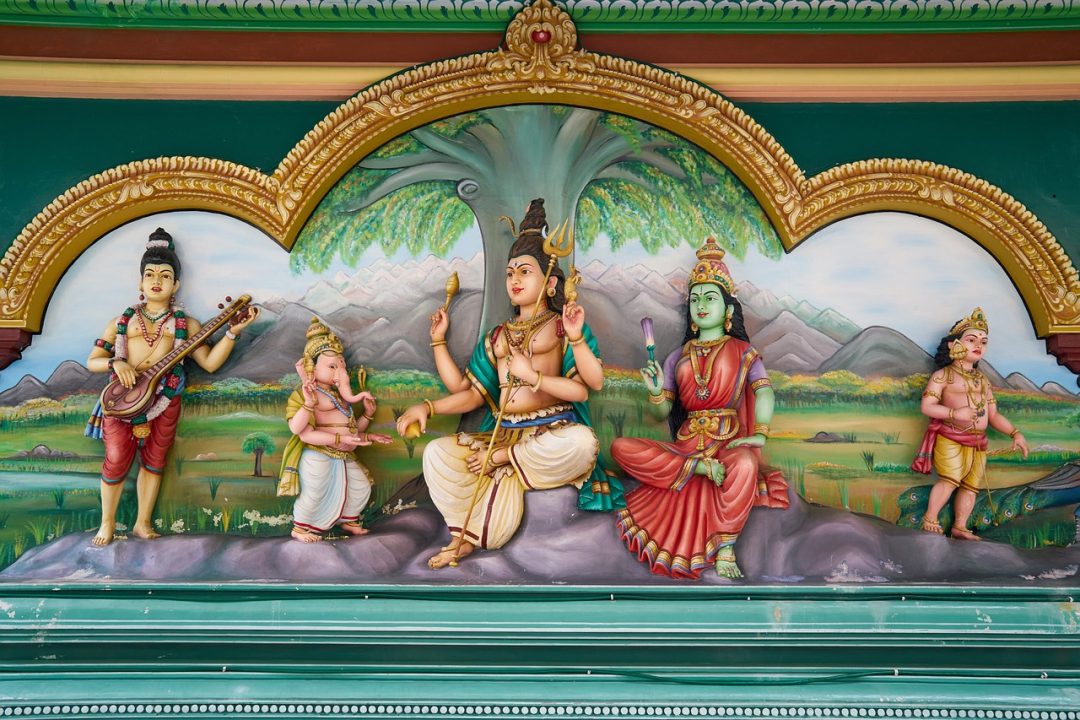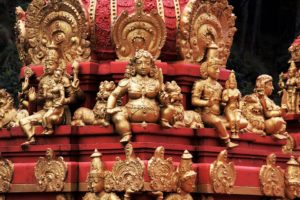Hinduism is an old, old religion having its origins sometime around 32,000 BC; Sikhism, in comparison, is new, coming into existence during times 1469-1538 AD. Hinduism seeks to make sense out of the universe by use of astrology and other manifestations of nature; Sikhism, on the other hand, is an attempt to combine the best of Bhakti Hinduism and Sufi Islamic. What are the particulars of these two religions?
Bhakti somewhat amends the original Hindu religion in some respects.
It came about when some followers began to emphasize love as being an all-powerful emotion surpassing knowledge in importance. Less of a ritualistic approach and love thy neighbor kind of approach was assumed. However, since its inception into Hinduism, it has likewise taken on other thoughts and attitudes concerning the world of creation.
 Sufi Islam is likewise a movement within the Islamic religion that contradicts some of the basic principles of Islam. The term Sufi is taken from the Arabic word suf which Western dictionaries translate to mean wool and thus a cloak or a warm covering. The word is derived from three Arabic letters sa wa fa. Yet words in Arabic have many different meanings and in no way translates into Western thought. Therefore how Sufi Islam and Bhakti Hinduism combined itself to from Sikhism is an interesting story in itself.
Sufi Islam is likewise a movement within the Islamic religion that contradicts some of the basic principles of Islam. The term Sufi is taken from the Arabic word suf which Western dictionaries translate to mean wool and thus a cloak or a warm covering. The word is derived from three Arabic letters sa wa fa. Yet words in Arabic have many different meanings and in no way translates into Western thought. Therefore how Sufi Islam and Bhakti Hinduism combined itself to from Sikhism is an interesting story in itself.
Who Started Sikhism?
Sikhism was started by Shri Guru Nanak Dev Ji at Sultanpur sometime during his lifetime (1469-1538) He, like most preachers who started new religions had some personal quarrels with the established religion. He sought to enlighten others about his visions. He was against the many gods of Hinduism and like the Islamic believers; he believed in one God and rejected idol worship. He thought all men were equal and opposed the caste system of Hinduism. There is controversy among those who study religions about how much Hinduism and how much Islam is contained within the Sikhism religion. There are those who believe in it exclusively and do not think there are connections to either Hinduism or to Islam. And then there are those who believe it is a purified form of Hinduism. And further still, many believe that the best parts of both religions combined to make up a new form of worship.
All arguments are valid
It is reported the Nanak often said there is no Hindu, there is no Muslim, and this has now been incorporated into Sikhism. Guru – teacher – is meaningful work in Sikhism. Nine of those, supposedly reincarnations of the founder-led the flock after his death until 1708. Then the holy text took over which is considered the eleventh guru.
Sikhism is a very large religion today and is probably made up of Hinduism and Islamic principles depending on the individual worshippers. It had its origins in the Punjab region of India, but now since Pakistan and India are two separate countries, the religion is mainly headquartered in the Punjab section of Pakistan. A large following is in Canada, the US and in England and all around the world.
Basically it is a belief in one God, in reincarnation, and a denial of the trinity, or three persons in one God. They do not believe in Christian principles but believe in the equality of mankind. Yet, despite denials, links to both Hinduism and Islam exist.







